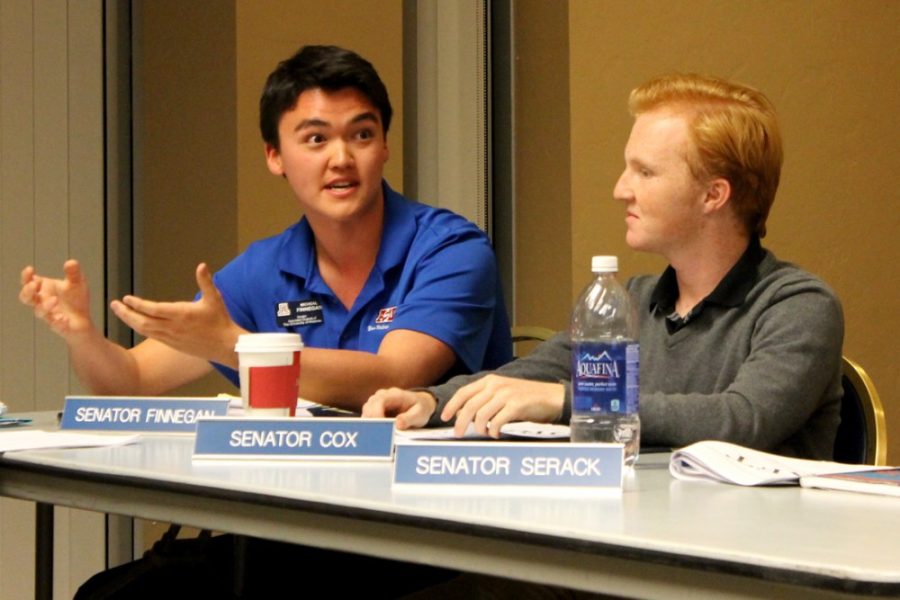At the ASUA Senate meeting on Wednesday evening, the senate debated revising the elections code for the March 2015 ASUA elections.
Major concerns regarding the Associated Students of the University of Arizona elections code that Diego Alvarez, the ASUA elections commissioner, brought to the senate involved campaigning and platforms.
Questions regarding campaigning ranged from restrictions on where posters and banners may be placed to who may be allowed to campaign for a potential candidate.
ASUA Sen. Elena Gold brought up during a discussion of fairness that there is a portion of the elections code that says those who hold office can not be campaign managers.
“It says that you shall not serve as a campaign manager if you’re an elected official, but you are allowed to support,” Gold said. “So if the ultimate objective is fairness, I don’t see how that is fair.”
Alvarez said the point of that section was in terms of endorsement, but that it has always been prohibited in the code.
Gold also had an issue with the restrictions of where posters may be placed, limiting candidates to any location that is not a light pole, traffic signal pole, stop sign, bus stop shelter, bench, tree or Sun Link Tucson Modern Streetcar.
“I understand maybe some of those,” Gold said. “I definitely don’t think you should put [a] campaign poster over a stop sign; that seems like it would be [a] definitely hazardous thing to do. I think that some of the other things might be a bit dramatic.”
Gold also had an issue with the restriction on leafleting on cars off campus, saying it is an effective form of marketing.
ASUA Sen. Joey Steigerwald informed Gold that the restrictions are due to laws, such as it being illegal to place posters on a stop sign.
Alvarez said the issue with locations of some posters or other campaigning techniques such as chalking, is due to university policy. He further explained that the issue with leafleting on cars off campus is that it leads to irritation among voters. He also mentioned that posters can not be placed in locations such as university computer labs, as those are areas of academic study and that posters can be distracting to some.
Questions regarding platform focused mostly on the complaint that some candidates create platforms that are essentially unattainable.
“A lot of people run for office on platforms that are not feasible and are not going to happen,” Gold said. “So a huge problem with senate accountability in the past few years is people run on platforms they can’t realistically accomplish in a year and then we have the senators getting paid student money to do nothing for the year, and that is really, really not okay.”
Some senators did propose that campaign platforms should be approved prior to being officially used, similar to how campaign materials have to be approved. However, other senators did cite issues with the fact that they are not all knowledgeable in all platforms that may come up.
Alvarez said it is slightly unethical to grade a platform and inform the candidate that they either are or are not approved, and that it is up to the voters.
There was a final suggestion that platforms be eliminated altogether.
_______________
Follow Ariella Noth on Twitter.









